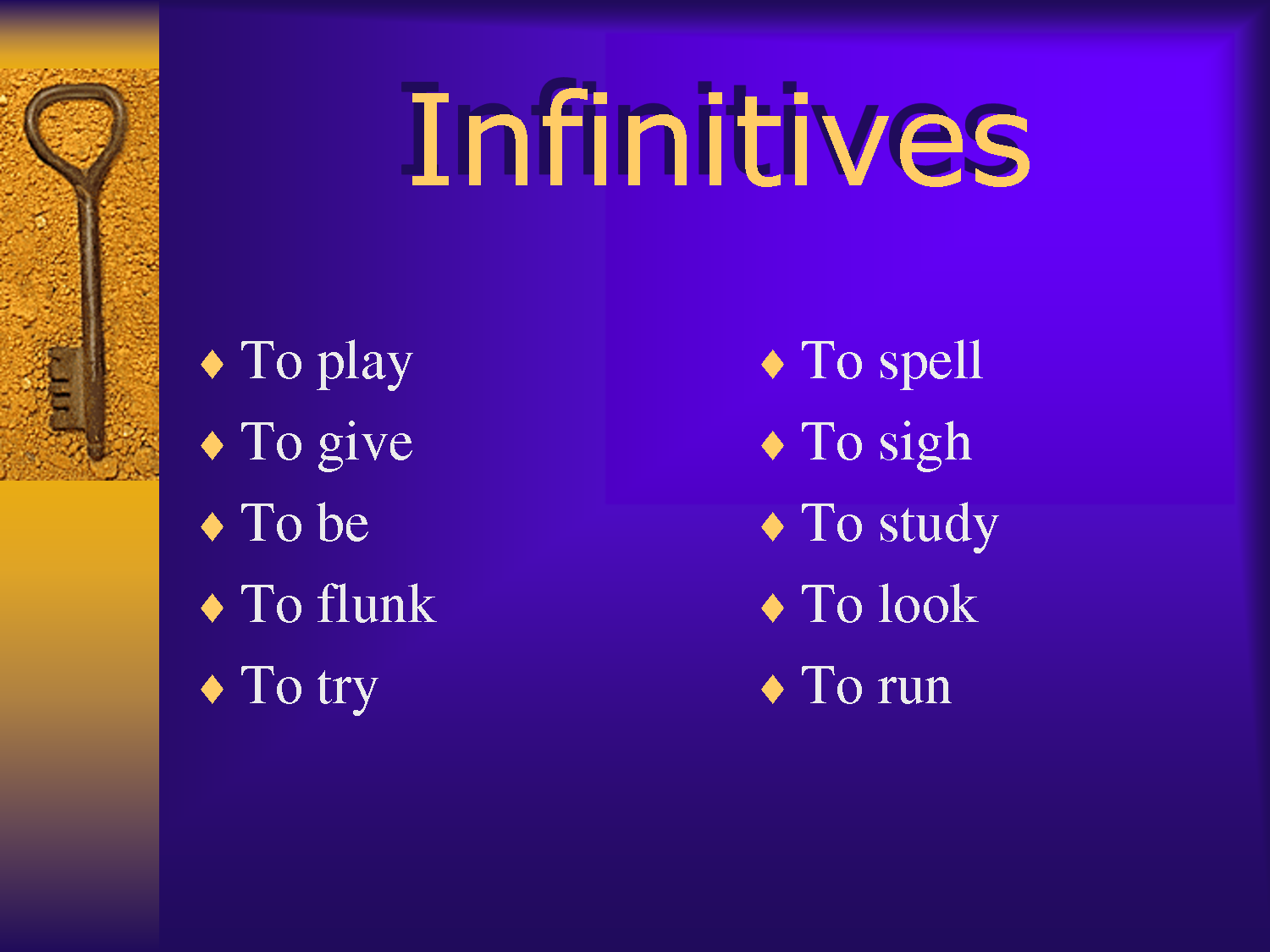

In the third example, the baby is the subject of the infinitive to smile, and the infinitive phrase the baby to smile is the direct object of the verb made. In the last example, the direct object is an infinitive.

The first two examples include infinitive phrases as direct objects. Joel asked Stephanie to meet him by the shoe store. I would like to learn more about the space program before I join it. This can include an infinitive that is part of a direct object preceding it. Infinitives and infinitive phrases can receive the action of the verb in a sentence. The first three examples have infinitive phrases as subject complements, and the subject complement in the last example is an infinitive. The mayor’s final decision was to keep the bridge open. Your best option could be to run for board treasurer.

Ryan’s next primary goal will be to ace the exam. Infinitives and infinitive phrases can identify or describe a sentence subject as its noun complement. Note that the subject in the second example is an infinitive, and the other three sentence subjects are infinitive phrases. To ace the exam will be Ryan’s next primary goal. To swim in the roped-off area of the beach might not be a good idea. To make a mistake in this business is common. Infinitives as Subject NounsĪn infinitive or an infinitive phrase can function as the thing or idea the sentence is about, making it a noun. She gave him the envelope to bring to his boss.īilly wants to play soldiers, but Robby would like to play marbles. To sprint faster is the challenge Nathan set for himself. When operating in these ways, if the infinitive has any modifiers, the entire infinitive phrase is included in the part of speech. Rather, it will serve a sentence as a noun (subject, subject complement, or direct object), an adjective, or an adverb. It consists of the word to and the present form of the verb (the infinitive stem): e.g., to run, to sing, to write, to follow.Īlthough an infinitive is the base of a verb, it does not function as one. Every English verb has an infinitive, which is the base form of the verb before it is conjugated.


 0 kommentar(er)
0 kommentar(er)
